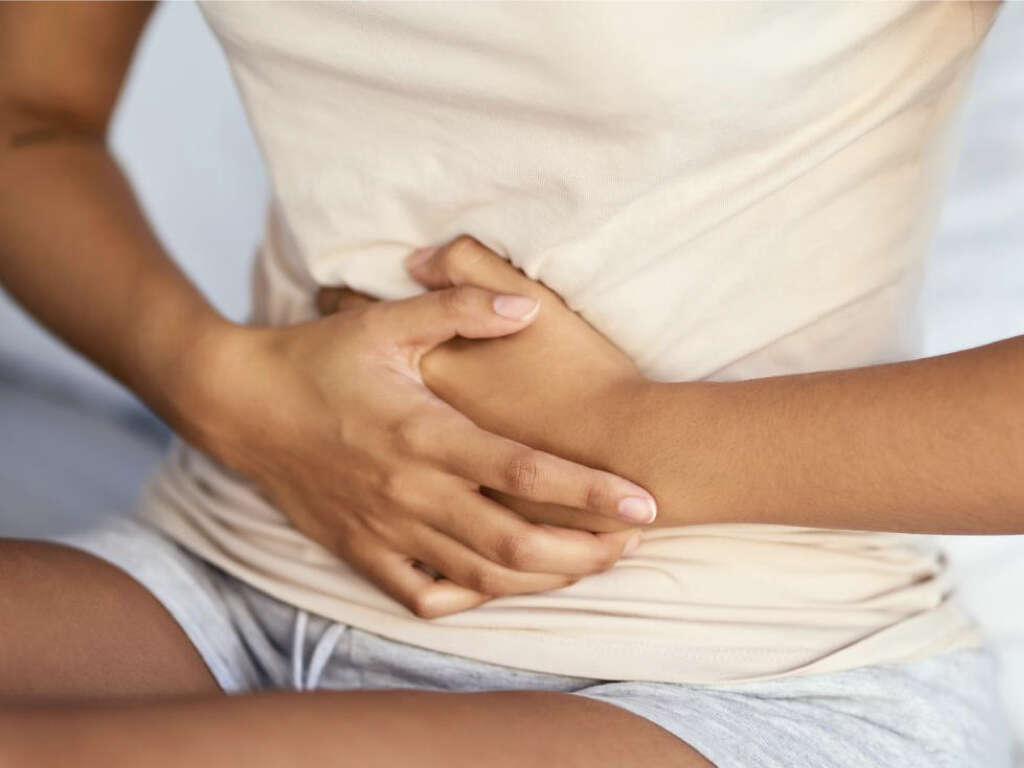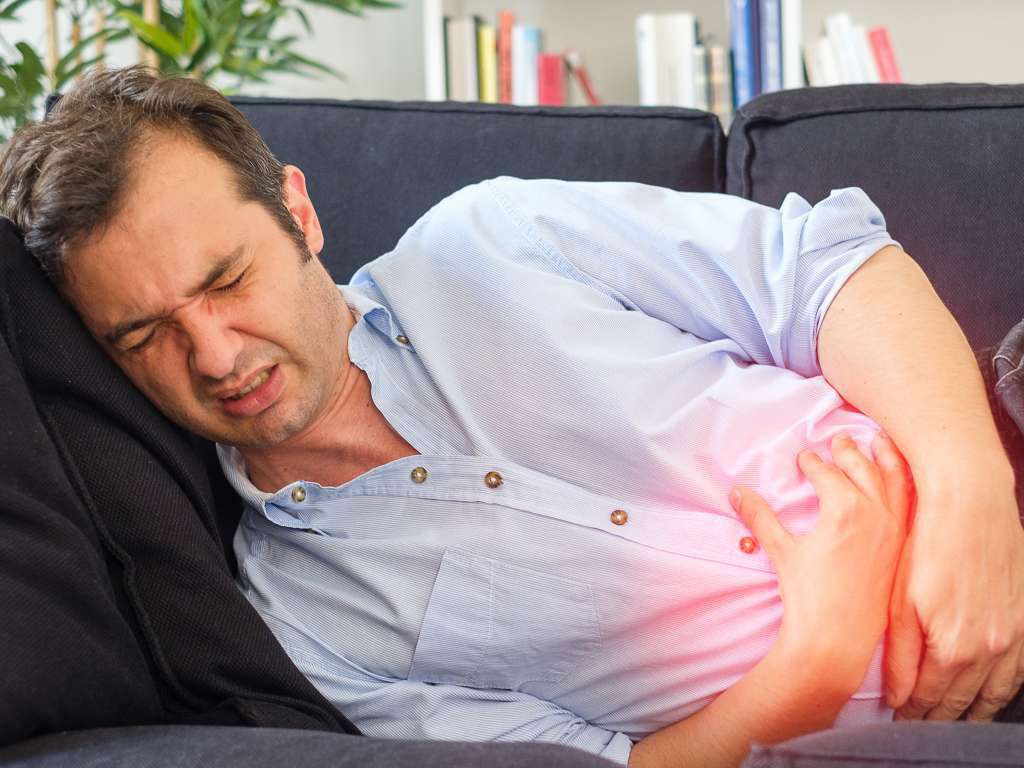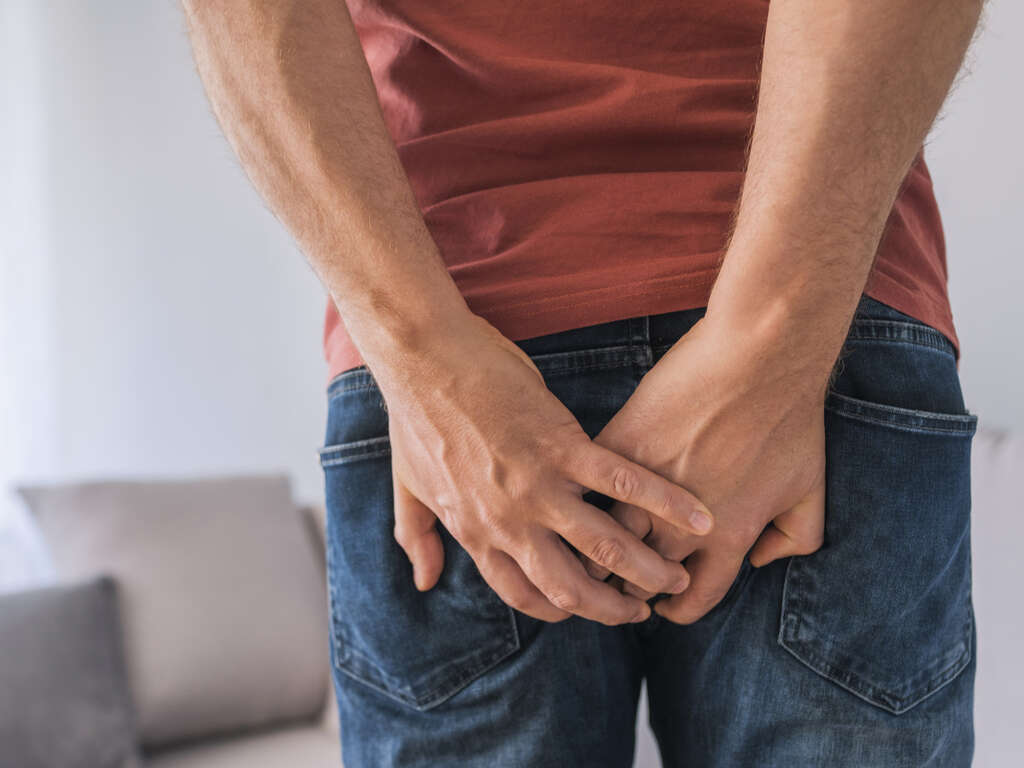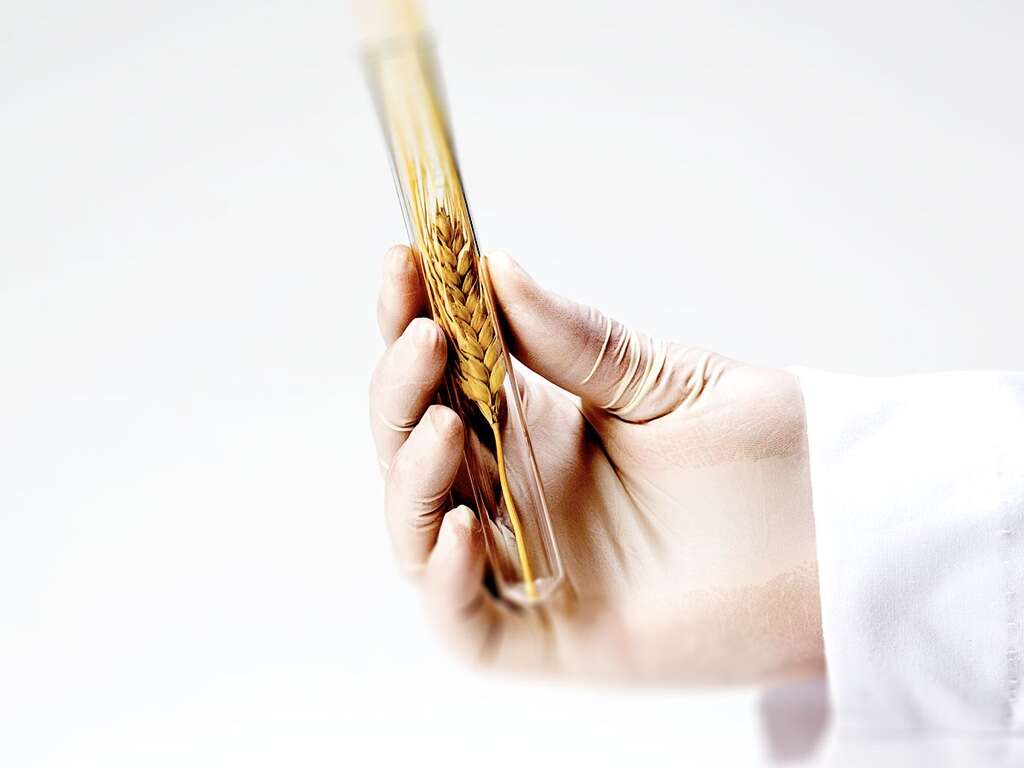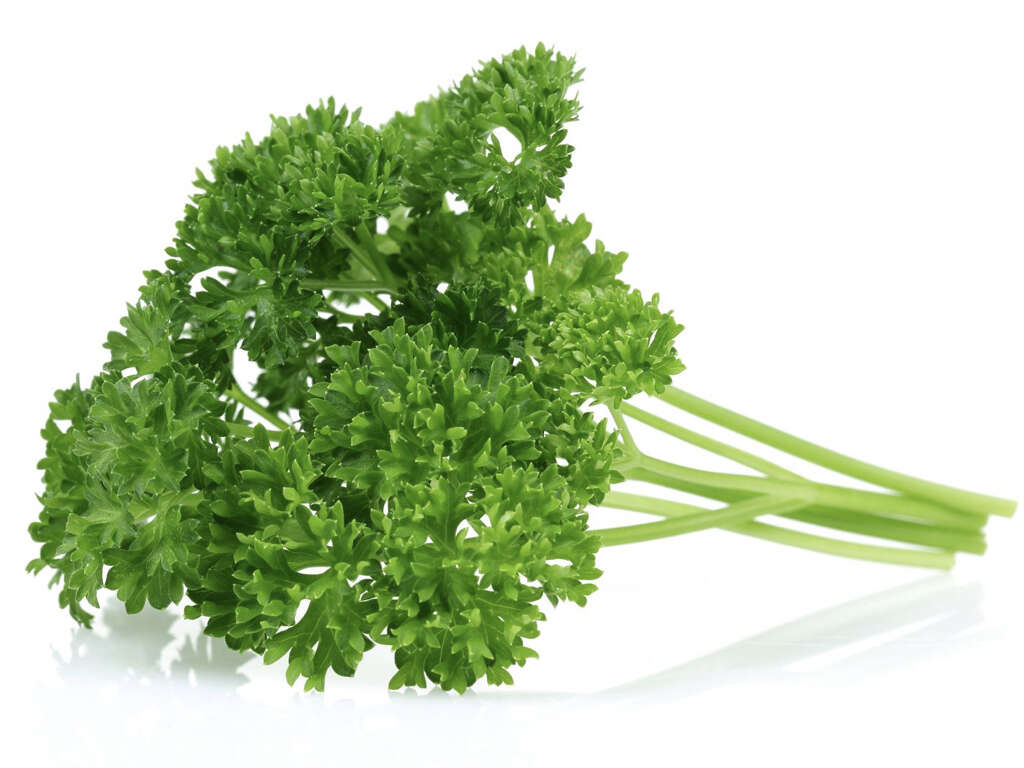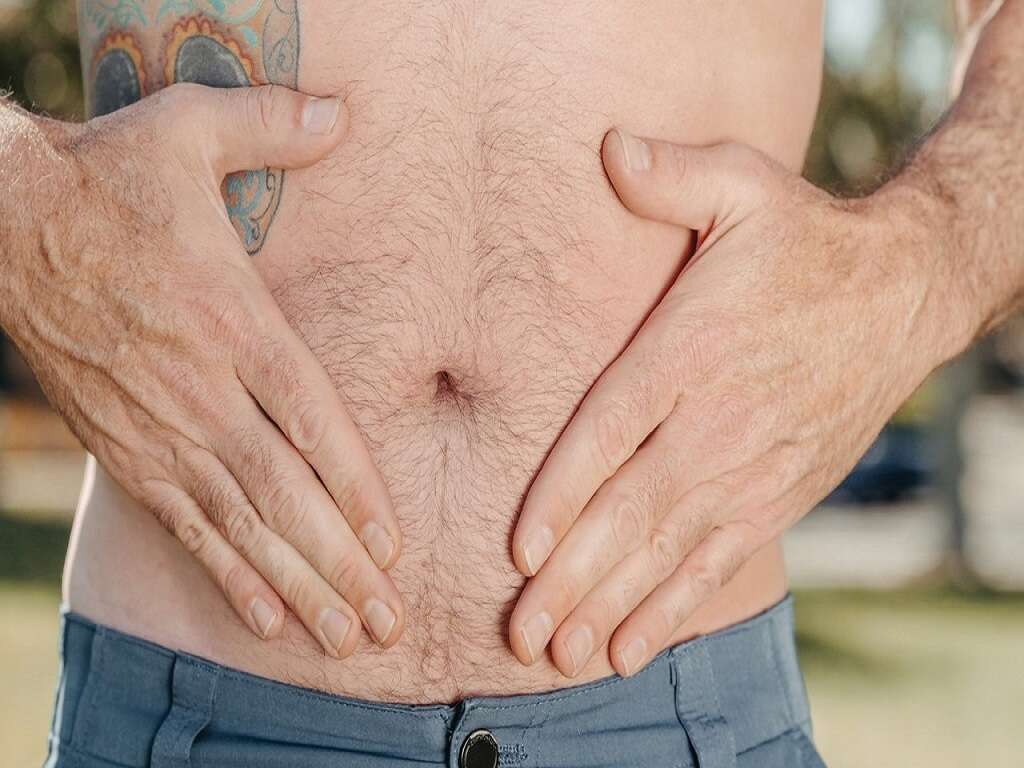Why Am I Constantly Gassy?
 Article Sources
Article Sources
- 1. 'Gas in the Digestive Tract.' National Institute of Diabetes and Digestive and Kidney Diseases, U.S. Department of Health and Human Services, www.niddk.nih.gov/health-information/digestive-diseases/gas-digestive-tract
- 2. Publishing, Harvard Health. 'Gas (Flatulence).' Harvard Health, www.health.harvard.edu/a/to/z/gas-flatulence-a-to-z
- 3. 'Gas in the Digestive Tract.' Johns Hopkins Medicine, www.hopkinsmedicine.org/health/conditions-and-diseases/gas-in-the-digestive-tract
- 4. Gas By Jonathan Gotfried, et al. 'Gas - Digestive Disorders.' Merck Manuals Consumer Version, Merck Manuals, www.merckmanuals.com/home/digestive-disorders/symptoms-of-digestive-disorders/gas
- 5. 'Gas and Gas Pains.' Mayo Clinic, Mayo Foundation for Medical Education and Research, 3 Mar. 2020, www.mayoclinic.org/diseases-conditions/gas-and-gas-pains/symptoms-causes/syc-20372709
- 6. 'Intestinal Gas Causes.' Mayo Clinic, Mayo Foundation for Medical Education and Research, 16 Apr. 2019, www.mayoclinic.org/symptoms/intestinal-gas/basics/causes/sym-20050922
- 7. 'Irritable Bowel Syndrome.' Mayo Clinic, Mayo Foundation for Medical Education and Research, 15 Oct. 2020, www.mayoclinic.org/diseases-conditions/irritable-bowel-syndrome/symptoms-causes/syc-20360016
- 8. 'Gastroesophageal Reflux Disease (GERD).' Mayo Clinic, Mayo Foundation for Medical Education and Research, 22 May 2020, www.mayoclinic.org/diseases-conditions/gerd/diagnosis-treatment/drc-20361959
- 9. 'Celiac Disease.' National Institute of Diabetes and Digestive and Kidney Diseases, U.S. Department of Health and Human Services, www.niddk.nih.gov/health-information/digestive-diseases/celiac-disease
- 10. 'Dumping Syndrome.' National Institute of Diabetes and Digestive and Kidney Diseases, U.S. Department of Health and Human Services, www.niddk.nih.gov/health-information/digestive-diseases/dumping-syndrome
- 11. 'Abdominal Adhesions.' National Institute of Diabetes and Digestive and Kidney Diseases, U.S. Department of Health and Human Services, www.niddk.nih.gov/health-information/digestive-diseases/abdominal-adhesions
Intestinal gas is air in the digestive tract. It may exit the body through the mouth as burping or belching or through the anus in the form of flatulence. While people may make jokes about it, everyone passes gas. In fact, it's not uncommon for people to pass gas 20 times a day.
Gas in the digestive tract may cause uncomfortable symptoms before it leaves the body. Abdominal pain may be present. Bloating, a feeling of fullness that may cause the abdomen to become distended, is another symptom of gas, which commonly occurs after a meal.1‘Gas in the Digestive Tract.’ National Institute of Diabetes and Digestive and Kidney Diseases, U.S. Department of Health and Human Services, www.niddk.nih.gov/health-information/digestive-diseases/gas-digestive-tract
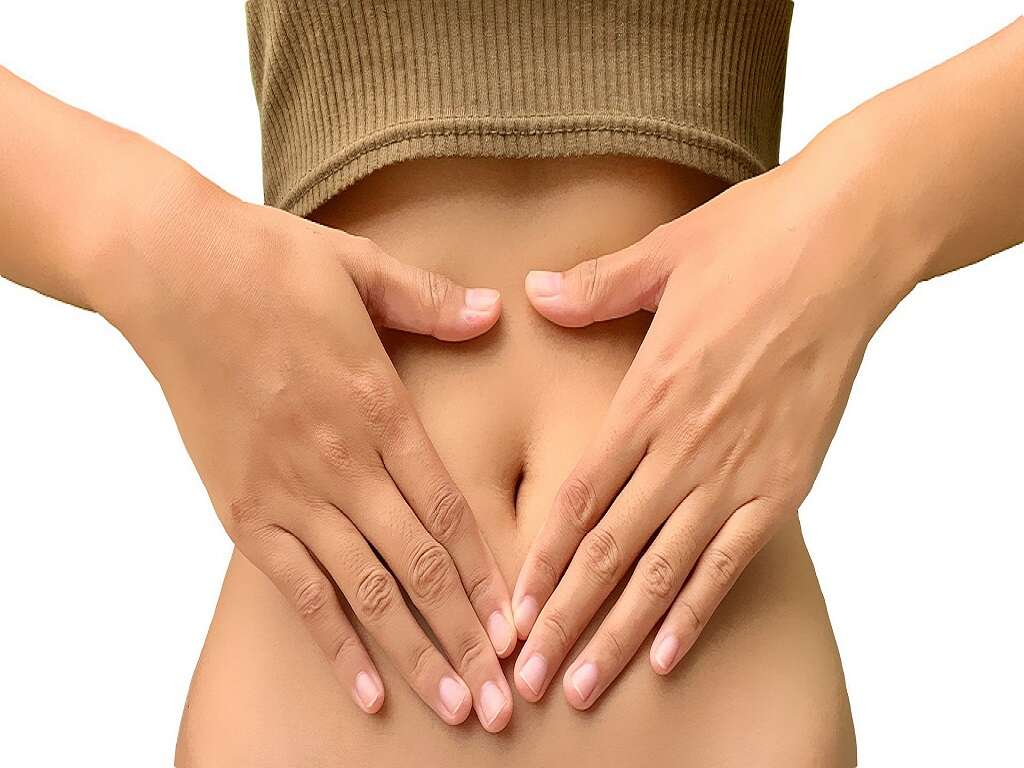
Swallowed Air
Swallowing air is a common cause of gas in the upper intestinal tract. Everyone swallows a small amount of air when they eat, but some activities, such as eating or drinking too fast, may cause a person to swallow too much air.
Other activities that may contribute to excessive swallowing of air include chewing gum, smoking, drinking through a straw and sucking on hard candies. Wearing dentures that don't fit correctly may also cause a person to swallow too much air. Sometimes people gulp air as they talk, especially if they're nervous, excited or upset.1‘Gas in the Digestive Tract.’ National Institute of Diabetes and Digestive and Kidney Diseases, U.S. Department of Health and Human Services, www.niddk.nih.gov/health-information/digestive-diseases/gas-digestive-tract,2Publishing, Harvard Health. ‘Gas (Flatulence).’ Harvard Health, www.health.harvard.edu/a/to/z/gas-flatulence-a-to-z,5‘Gas and Gas Pains.’ Mayo Clinic, Mayo Foundation for Medical Education and Research, 3 Mar. 2020, www.mayoclinic.org/diseases-conditions/gas-and-gas-pains/symptoms-causes/syc-20372709,6‘Intestinal Gas Causes.’ Mayo Clinic, Mayo Foundation for Medical Education and Research, 16 Apr. 2019, www.mayoclinic.org/symptoms/intestinal-gas/basics/causes/sym-20050922

Bacteria in the Large Intestine
The body removes most of the swallowed air through belching, and some of the air is absorbed into the bloodstream. Carbohydrates may not be fully digested in the stomach and small intestine, and they pass into the large intestine.
When the undigested carbohydrates enter the large intestine, bacteria continue the digestive process, producing gas. This gas may be composed of hydrogen, carbon dioxide and methane, and it's expelled through the anus.1‘Gas in the Digestive Tract.’ National Institute of Diabetes and Digestive and Kidney Diseases, U.S. Department of Health and Human Services, www.niddk.nih.gov/health-information/digestive-diseases/gas-digestive-tract,3‘Gas in the Digestive Tract.’ Johns Hopkins Medicine, www.hopkinsmedicine.org/health/conditions-and-diseases/gas-in-the-digestive-tract,4Gas By Jonathan Gotfried, et al. ‘Gas - Digestive Disorders.’ Merck Manuals Consumer Version, Merck Manuals, www.merckmanuals.com/home/digestive-disorders/symptoms-of-digestive-disorders/gas

Gas-Producing Foods
While some foods cause gassiness in certain people and not in others, other foods commonly produce gas in many people. Carbonated beverages, cruciferous vegetables, bran, beans and lentils are a few common culprits. Dairy products containing lactose may also cause gassiness.
Fructose, present in some fruits and sometimes used as a sweetener, is another gas-producing substance. The sugar substitute sorbitol used in sugar-free products and artificial sweeteners also may cause gas. People who take fiber supplements containing psyllium may experience intestinal gas.5‘Gas and Gas Pains.’ Mayo Clinic, Mayo Foundation for Medical Education and Research, 3 Mar. 2020, www.mayoclinic.org/diseases-conditions/gas-and-gas-pains/symptoms-causes/syc-20372709,6‘Intestinal Gas Causes.’ Mayo Clinic, Mayo Foundation for Medical Education and Research, 16 Apr. 2019, www.mayoclinic.org/symptoms/intestinal-gas/basics/causes/sym-20050922

Irritable Bowel Syndrome
Gassiness may be a symptom of several conditions, one of which is irritable bowel syndrome. This common disorder of the large intestine also may cause cramping, abdominal pain, diarrhea and constipation. People with IBS may notice changes in the frequency of their bowel movements as well as changes in their stool's appearance.
Lifestyle modifications may help manage IBS. These include avoiding consumption of triggering foods, controlling stress, getting sufficient sleep and exercising regularly. Sometimes medications and counseling are helpful as well.7‘Irritable Bowel Syndrome.’ Mayo Clinic, Mayo Foundation for Medical Education and Research, 15 Oct. 2020, www.mayoclinic.org/diseases-conditions/irritable-bowel-syndrome/symptoms-causes/syc-20360016

Gastroesophageal Reflux Disease
Acid reflux occurs when stomach acids travel from the stomach back into the esophagus. This may occur because of weakening of the muscle controlling the passage of materials between the stomach and esophagus. When reflux occurs frequently, a person may be diagnosed with gastroesophageal reflux disease, which can damage the esophagus over time.
People with GERD may experience belching as well as heartburn, chest pain, swallowing problems, chronic cough and laryngitis. Addressing GERD may include lifestyle modifications, over-the-counter and prescription medications or surgery.8‘Gastroesophageal Reflux Disease (GERD).’ Mayo Clinic, Mayo Foundation for Medical Education and Research, 22 May 2020, www.mayoclinic.org/diseases-conditions/gerd/diagnosis-treatment/drc-20361959

Problems Digesting Carbohydrates
Some people have difficulty digesting certain carbohydrates, and this may lead to increased gassiness. Those with lactose intolerance may experience gas, bloating and diarrhea after consuming dairy products. People with fructose intolerance may notice similar symptoms after eating foods containing fructose.
Celiac disease is an immune and digestive disorder in which the consumption of gluten triggers symptoms that may include abdominal pain, gas, bloating, diarrhea, constipation, nausea and vomiting. To avoid damage to the small intestine, people with celiac disease should avoid consuming gluten.9‘Celiac Disease.’ National Institute of Diabetes and Digestive and Kidney Diseases, U.S. Department of Health and Human Services, www.niddk.nih.gov/health-information/digestive-diseases/celiac-disease

Blocked Gas
In some cases, gassiness may be due to the speed at which food moves through the digestive system. Dumping syndrome causes food to move out of the stomach too fast. People with dumping syndrome may find relief through dietary changes.
Abdominal adhesions may partially or totally block the movement of food through the intestines. They may develop following surgical procedures or as a result of inflammation or infection in the abdomen. If the adhesions cause symptoms or total blockage, surgery is necessary.1‘Gas in the Digestive Tract.’ National Institute of Diabetes and Digestive and Kidney Diseases, U.S. Department of Health and Human Services, www.niddk.nih.gov/health-information/digestive-diseases/gas-digestive-tract,10‘Dumping Syndrome.’ National Institute of Diabetes and Digestive and Kidney Diseases, U.S. Department of Health and Human Services, www.niddk.nih.gov/health-information/digestive-diseases/dumping-syndrome,11‘Abdominal Adhesions.’ National Institute of Diabetes and Digestive and Kidney Diseases, U.S. Department of Health and Human Services, www.niddk.nih.gov/health-information/digestive-diseases/abdominal-adhesions
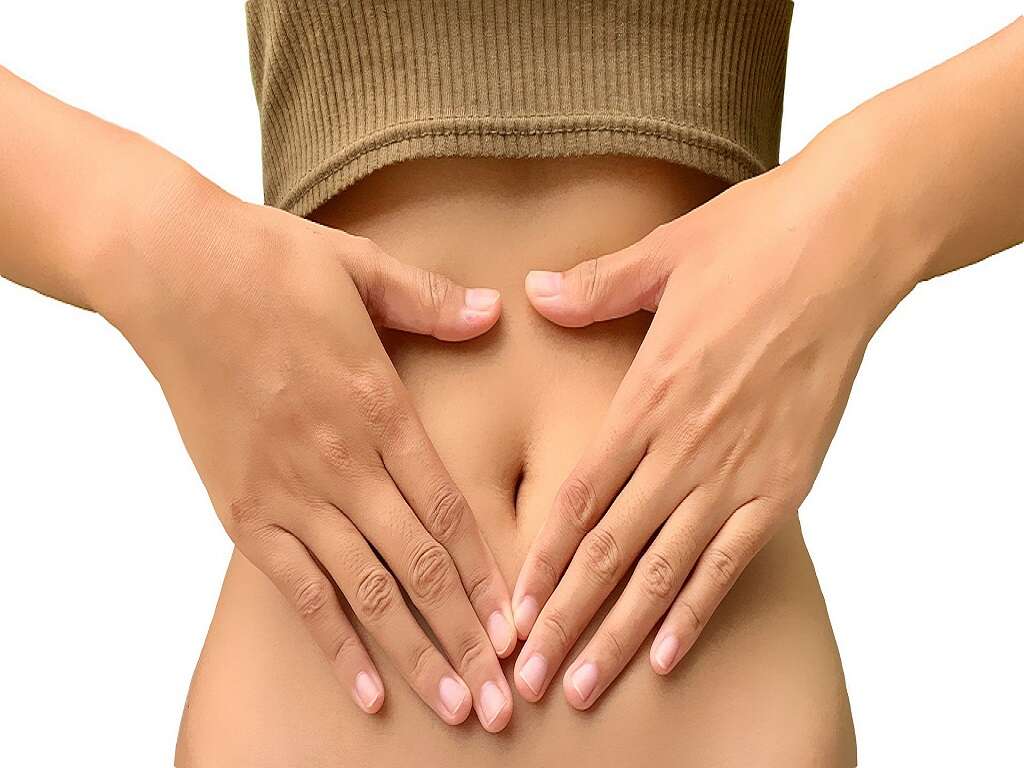
Preventing Excess Gas
Eating and drinking slowly and chewing food thoroughly before swallowing may help limit gassiness. Avoiding foods and beverages that cause gas for a few days, then adding them back into the diet one at a time can help pinpoint the culprits most likely to cause gas.
Those wanting to add more fiber to their diet should do so gradually to limit the production of gas. Some people find taking a product containing enzymes that break down carbohydrates may help aid digestion, thereby reducing gassiness.2Publishing, Harvard Health. ‘Gas (Flatulence).’ Harvard Health, www.health.harvard.edu/a/to/z/gas-flatulence-a-to-z

Medications To Reduce Gas
Taking activated charcoal tablets may help decrease the incidence of flatulence and its smell. Probiotics may help encourage the growth of beneficial bacteria in the digestive tract, possibly reducing gas and its associated symptoms.4Gas By Jonathan Gotfried, et al. ‘Gas - Digestive Disorders.’ Merck Manuals Consumer Version, Merck Manuals, www.merckmanuals.com/home/digestive-disorders/symptoms-of-digestive-disorders/gas
Some people find relief from gassiness by taking over-the-counter medications containing simethicone or bismuth. Those who experience gas due to lactose intolerance may take over-the-counter products containing the enzyme lactase prior to consuming dairy products. Alternatively, they can choose lactose-free products.2Publishing, Harvard Health. ‘Gas (Flatulence).’ Harvard Health, www.health.harvard.edu/a/to/z/gas-flatulence-a-to-z

When To See a Doctor
People with severe or persistent gassiness should schedule a doctor visit. People should also seek medical advice if gassiness is accompanied by symptoms, such as weight loss, constipation, diarrhea, or recurring nausea or vomiting. If flatulence is accompanied by bloody stools, changes in stool consistency or frequency of bowel movements, you should also see a doctor.
Emergency medical care is necessary if a person has prolonged abdominal pain or chest pain with associated gas pain.5‘Gas and Gas Pains.’ Mayo Clinic, Mayo Foundation for Medical Education and Research, 3 Mar. 2020, www.mayoclinic.org/diseases-conditions/gas-and-gas-pains/symptoms-causes/syc-20372709



